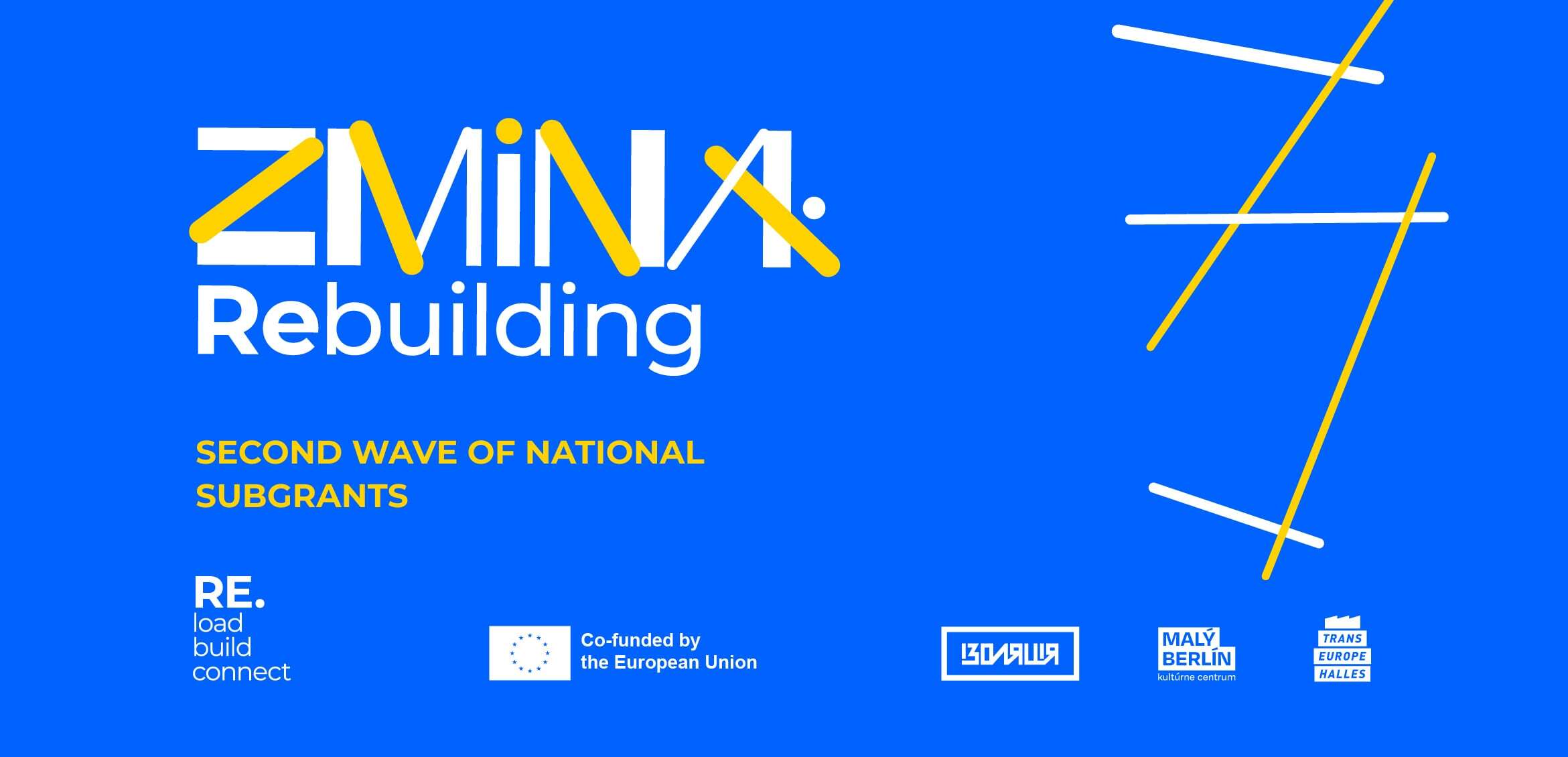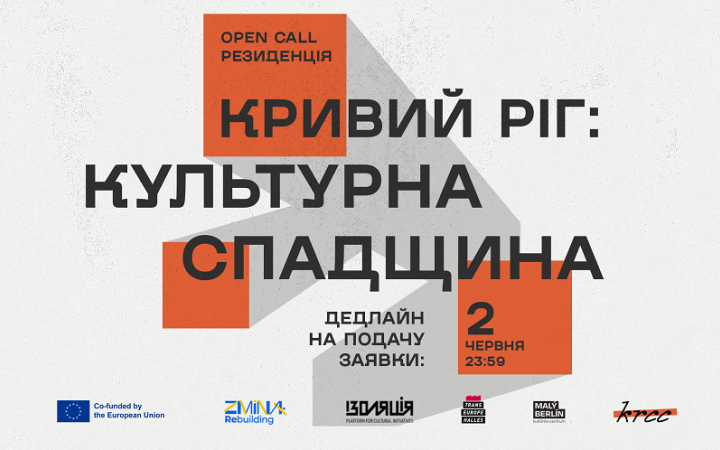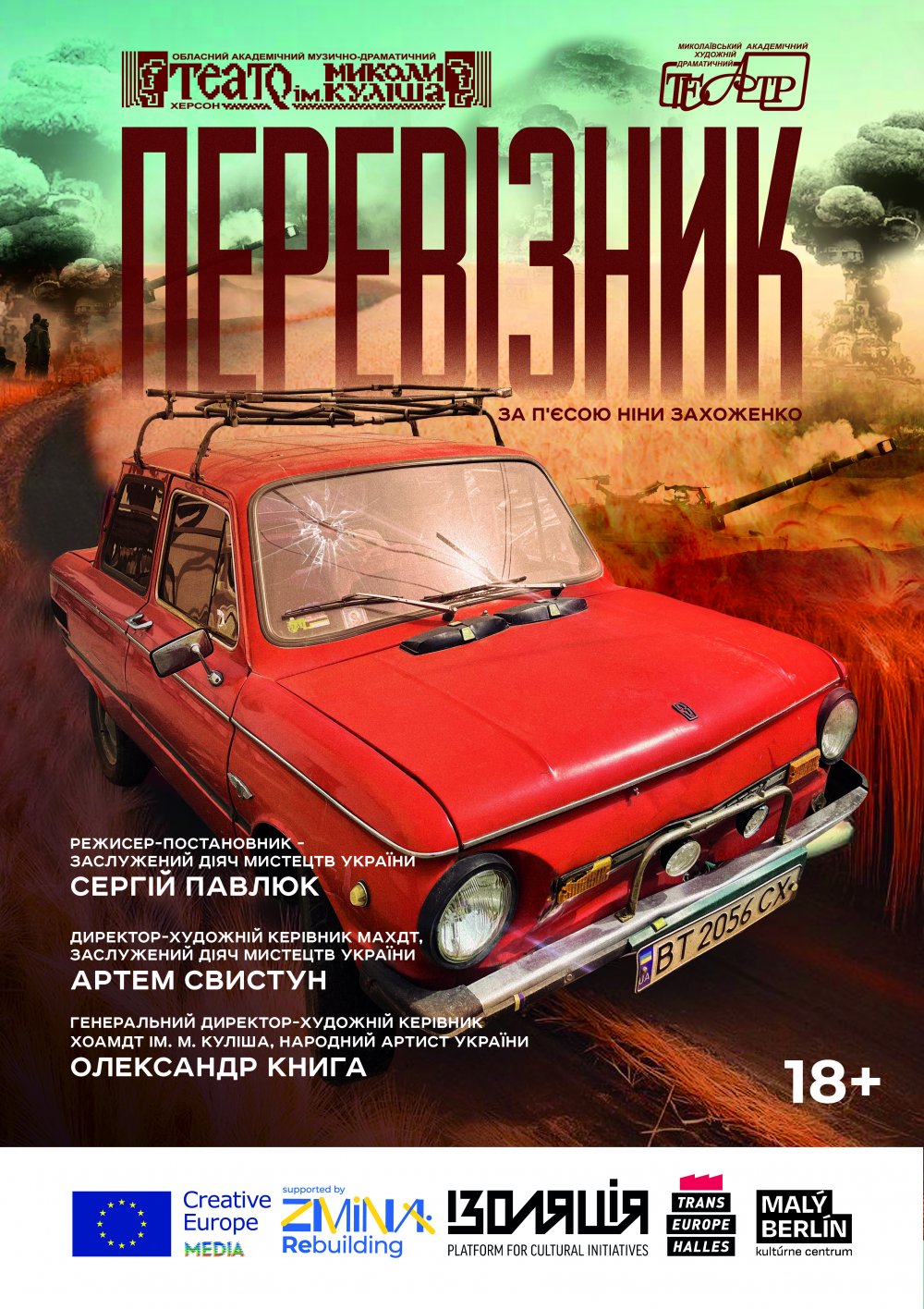ZMINA: Rebuilding. The projects of national subgrants second wave

IZOLYATSIA Foundation, together with Trans Europe Halles (SE) and Malý Berlín (SK), are starting the second wave of ZMINA: Rebuilding national subgrants projects implementation.
The second wave of ZMINA: Rebuilding national subgrants includes a call for proposals to implement projects in Ukraine by Ukrainian artists or cultural organizations.
The program aims to create and demonstrate on the national level cultural, artistic and creative projects that facilitate, promote or mediate public discourse on “rebuilding”: identity, social norms, communities, relationships, infrastructure, etc. Summing up the results of the second call for national projects, there are 162 applications submitted by applicants. Among these 162 applications, 11 projects were supported by ZMINA: Rebuilding program with a total budget of 107,158 euros.
Vidnova by NGO Zmist
The project aims to rehabilitate the community that has survived the Russian occupation by addressing the complex needs for physical recovery, economic growth, social cohesion, and environmental safety. The project's goal is to stimulate the recovery of the community affected by the occupation through an integrated approach that includes physical restoration of infrastructure, economic resuscitation, restoration of social ties, and environmental sustainability. The project aims to increase community participation in the recovery process, which will help increase its resilience and self-sufficiency.
Full Circle by Repair Together

The Full Circle project aims to restore and preserve the cultural heritage and socio-cultural identity of the de-occupied villages of Chernihiv Oblast. Its goal is to create a photo book that will reflect rural communities' diversity and cultural heritage through photographs, stories, and reportage. The project aims to raise awareness of the importance of rural communities in developing culture and society and promote the preservation and development of their cultural heritage. This project offers a new approach to highlighting the life and achievements of rural areas through photographs and stories of their inhabitants and involving them in collaborations to create designs and express their thoughts and feelings.
Life After: The Dialogue by NGO Territory

The aim of the project is to stimulate public discourse among a wide range of audiences about reconstruction and recovery in the war and post-war period by implementing a multilayered art project involving internally displaced persons of 3 generations who lost their homes due to Soviet-Russian aggression (in the 1986s during the flooding of 30 villages in the Bakota region by the Soviet authorities, in 2014 and 2022 during Russian military aggression). During the 10-day residency, people who were displaced in the past will interact with people who are displaced now - living in the same village, interacting, sharing, hearing, and researching each other's stories.
Kryvyi Rih: Cultural Heritage by NGO Kryvyi Rih Development Institute

The project aims to promote the preservation and renewal of Kryvyi Rih's cultural and industrial heritage. It focuses on creating intersectoral cooperation between architects, urbanists, artists, historians, and civil society representatives to develop scenarios for the city's recovery, revitalization of its industrial heritage, and preservation of its cultural heritage that reflects its uniqueness.
Architectural and Artistic Research Residence Kut 772 by Cultural Dialogue

The goal of the project is to unlock the potential of cultural heritage for the restoration of identities and sustainable development of small communities through an interdisciplinary project. The main tasks are to conduct a pilot program of architectural and artistic research in cooperation with the Hata Mazanka Community Center and the Nazariy Voitovych Art Residence; provide a platform for establishing cooperation between the communities of Kharkiv and Ternopil regions; to create an art exhibition project as a result of artists' rethinking of the archaic traditions of construction and cultural heritage of the Krasnokutsk and Zbarazh communities by modern media and architects; to present the developments and provide an opportunity to share experiences in rethinking cultural heritage for the sustainable development of Ukrainian small communities; and to publish the results of the project in open access online.
Sound Experiences of War. Exhibition and Public Program by NGO UAC-Lviv

"Sound Experiences of War. Exhibition and Public Program" is a project focused on sound art and aimed at researching and understanding changes in the sound environment and its perception. The aim of the project is to combine sound recordings and live broadcasts from different cities of Ukraine in one space in order to use artistic tools to promote recovery processes through joint discussion and narration of traumatic experiences. The project will include an exhibition of sound artworks at various locations in Lviv, including the Klymentii Sheptytskyi Museum of Folk Architecture and Rural Life in Lviv, the Municipal Art Center, the House of Sound (6 Knyazia Romana St.), House 42 (42 Rynok Square), the Museum of the City (1 Rynok Square), and others.
Performance The Carrier by the Kulish National Art and Drama Theater of Ukraine

Creating the play Carrier about the south of Ukraine, which was occupied by the Russian military in the first days of the full-scale invasion, to document Russian crimes against Ukrainians, reflect on the experience, and continue the dialogue on the country's recovery. The play is a joint project of the Kherson Regional Academic Music and Drama Theater, named after M. Kulish, and the Mykolaiv Academic Art Drama Theater. The author of The Carrier is Nina Zakhozhenko. The play is directed by the Honored Artist of Ukraine, Serhiy Pavliuk.
Antonin Artaud Fellowship 2024 by the PROTO PRODUKCIIA

The project will support artists from the performing arts who are at the stage of professional development and continue to work in Ukraine. As a result of the project, chamber experimental works will be created and presented, which can become the basis for future larger projects. The overall goal is to support the creation of innovative cultural and artistic projects in Ukraine in the field of performing arts, which could become the basis for future projects that could represent Ukraine abroad.
Spaces of Change by Youth Online
The project "Spaces of Change" is aimed at the current and post-war transformation of Zaporizhzhia through the development of a network of public spaces - places of influence, using cultural activity as a tool to engage citizens in the reconstruction process This project primarily involves young people in the transformation of public spaces into comfortable and understandable places for everyone, through educational sessions, creative workshops, interactive tours, and an innovative urban workshop. A separate important element of the project is a hackathon, which, in addition to a large panel discussion involving representatives of local authorities, urbanists, city planners, and business representatives, will create a platform for developing specific solutions to the city's problems.
Social Recovery in the Frontline and De-Occupied Communities by NGO KOLO LISU

The project "Social Recovery in Frontline and De-occupied Communities" was created in response to the needs of Oleksiyivka ATC in Kharkiv Oblast after being in the frontline zone and the needs of Tsyrkunivka ATC after the period of occupation and hostilities. The project aims to restore social ties and cultural development and strengthen civic awareness among the youth communities of these communities.
From Destruction to New Life by Dmytro Chulkov

The aim of the project is to restore and transform the school yard damaged by the presence of Russian tanks into a landscaped park. And most importantly, emotional rehabilitation and restoration of faith in the future for students who survived the occupation. With the help of school students, volunteers and an active community, we plan to create not only a place to wait for the school bus, but also an emotionally meaningful space for children who have experienced the horrors of occupation and war. The project involves the creation of a piece of landscape architecture, taking into account the requirements of inclusiveness, environmental friendliness, using renewable materials and with the active participation of the community for the sustainable development of the region.
Zmina: Rebuilding is a project the EU's Creative Europe program co-funded as part of a special call for proposals to support Ukrainian IDPs and the Ukrainian cultural and creative sectors. The project is the result of cooperation between the IZOLYATSIA Foundation (Ukraine), the Trans Europe Halles network (Sweden) and the Malý Berlín organization (Slovakia).